Growth & Appetite Tracker for Teens on ADHD Meds
Track Your Teen's Growth Progress
Results
Projected Growth in 6 Months:
Recommended Actions
- Consider medication timing adjustment if appetite loss is severe
- Focus on high-calorie breakfasts before dosing
- Schedule growth check in 3 months if growth is below 25th percentile
When a teenager starts taking ADHD medication, parents often focus on the big wins: better grades, fewer outbursts, improved sleep at night. But there’s another side to the story-one that doesn’t make headlines. ADHD medication can quietly affect how a teen grows, eats, and feels day to day. And if you’re not watching for it, those small changes can add up.
Why Appetite Vanishes During the School Day
Stimulant medications like methylphenidate (Ritalin, Concerta) and amphetamines (Adderall, Vyvanse) work by boosting dopamine and norepinephrine in the brain. That’s what helps with focus. But those same chemicals also signal the body it’s not hungry. For many teens, appetite drops sharply within an hour of taking their morning dose. By lunchtime, they’re not hungry. By the end of the day, they’ve eaten maybe one granola bar. Studies show 50 to 80% of adolescents on stimulants experience this. It’s not laziness. It’s biology. One parent on Reddit shared that her 14-year-old son eats almost nothing at school, then devours 2,000 calories after 5 p.m. when the medication wears off. That pattern isn’t rare. In fact, a 2022 survey by CHADD found 42% of teens on ADHD meds consumed under 300 calories during school hours. The problem isn’t just missing meals. It’s missing nutrients. Skipping protein, healthy fats, and complex carbs during the day means the body doesn’t get the building blocks it needs to grow. And when dinner becomes a binge, it’s often high-sugar, high-fat food-hardly ideal for long-term health.Growth Isn’t Always What It Seems
Growth suppression is one of the most talked-about side effects, but it’s also one of the most misunderstood. It doesn’t mean a teen will end up short. It means their growth rate slows down while they’re on medication. Long-term studies, like the 2004 MTA follow-up and a 2014 analysis in the Journal of Child and Adolescent Psychopharmacology, found teens on stimulants for several years grew about 1.39 to 2.55 centimeters (roughly half to one inch) less than expected. That sounds alarming-but here’s the key: most of that delay happens in the first 12 to 24 months. After that, growth tends to stabilize. And here’s the hopeful part: catch-up growth is common. A 2013 study in the Journal of Pediatrics found 87% of teens who took a medication break recovered 75% of their expected growth velocity within six months. Even more encouraging: a 2023 follow-up to the MTA study showed 89% of teens who had slowed growth during adolescence caught up to their genetic height potential by age 25. Not all medications affect growth the same way. Amphetamines like Vyvanse and Adderall tend to suppress growth slightly more than methylphenidate-based drugs. Extended-release versions may cause less daily appetite loss but have a more constant effect on growth over time. Non-stimulants like atomoxetine (Strattera) rarely affect growth-but they’re also 30-40% less effective at reducing core ADHD symptoms, according to a 2017 Cochrane Review.How Often Should You Check Growth?
You can’t fix what you don’t measure. The American Academy of Pediatrics says to track height and weight at baseline, then every three months during the first year of treatment, and every six months after that. That’s not optional. It’s standard care. What counts as a red flag? A drop of more than 0.5 in height z-score or 1.0 in weight z-score within six months. That means your teen is falling off their growth curve. If that happens, don’t panic-but do act. Talk to the doctor. Consider a medication holiday. Adjust timing. Change the dose. Some clinics use electronic growth charts that flag changes automatically. If your provider isn’t doing this, ask. Nearly 92% of pediatric practices now use digital tracking, according to a 2021 AAP survey. You’re not being pushy-you’re being responsible.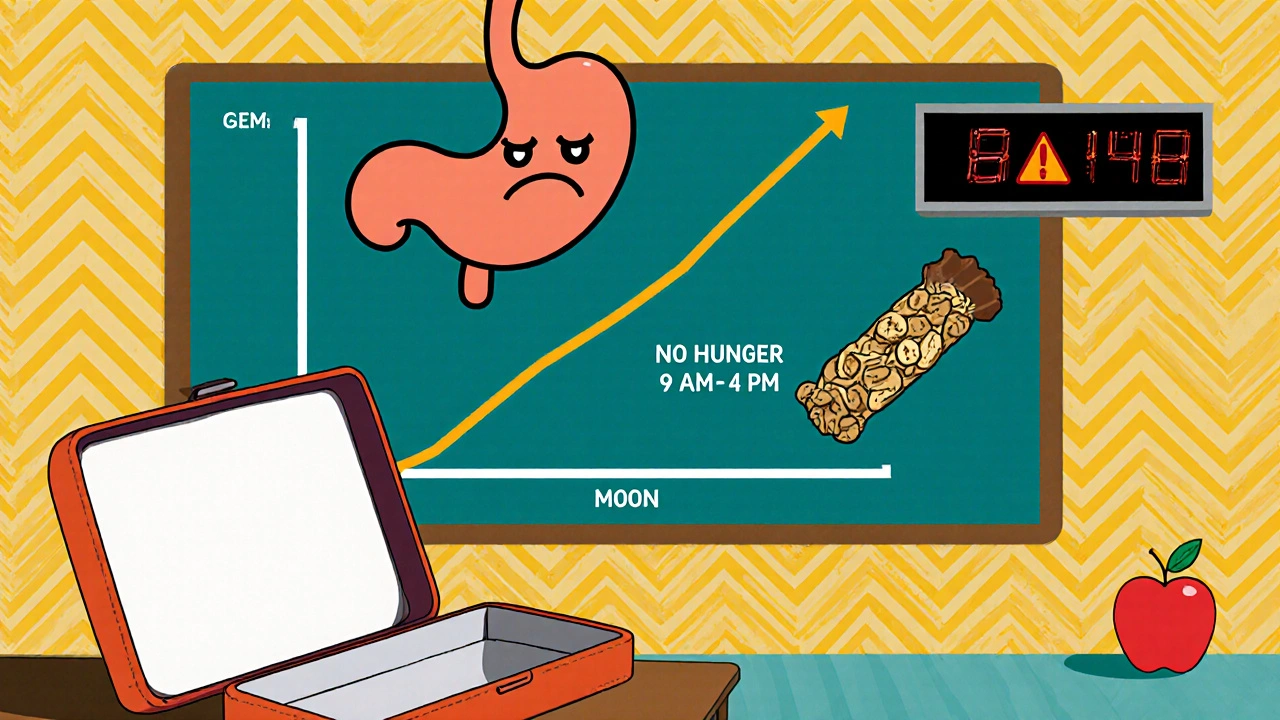
What to Do When Appetite Disappears
You can’t force a teen to eat when they’re not hungry. But you can work with their biology. Start with timing. Give a high-calorie, protein-rich breakfast before the first dose. Think scrambled eggs with cheese, peanut butter on whole grain toast, or a smoothie with banana, almond butter, and Greek yogurt. By the time the medication kicks in, they’ve already eaten enough to fuel their morning. Snacks matter more than meals. Keep calorie-dense, nutrient-rich options on hand: trail mix, cheese sticks, avocado slices, nut butter packets, full-fat yogurt. Offer these when the teen is most likely to eat-right after school, before homework, or during family dinner. Dinner should be the main event. Make it rich in calories and protein. Add olive oil to veggies, serve whole milk, include lean meats, and offer dessert. A 2022 CHADD survey found that families who focused on high-calorie evening meals saw less weight loss and better growth outcomes. In rare cases, appetite stimulants like cyproheptadine are used. But this is a last resort. It’s not a magic fix-it’s a tool for severe cases where weight loss exceeds 10% of body weight. One parent reported her daughter’s weight percentile dropped from 50th to 15th after eight months on Concerta. Switching to a non-stimulant was the only solution that worked.When to Consider a Medication Break
Medication holidays-taking a break during summer, holidays, or weekends-are not new. But they’re still underused. The NHS England guideline recommends them for teens with growth concerns. A 2020 study in the Journal of Attention Disorders found 73% of pediatric psychiatrists support planned breaks. It’s not about stopping treatment. It’s about giving the body a chance to reset. Growth slows during treatment, but it doesn’t stop forever. Many teens gain inches during summer break. Appetite returns. Weight stabilizes. Talk to the doctor about a trial break. Monitor symptoms carefully. If behavior or focus tanks, it might mean the medication is still necessary. But if things stay stable? That’s a sign the body can handle a break.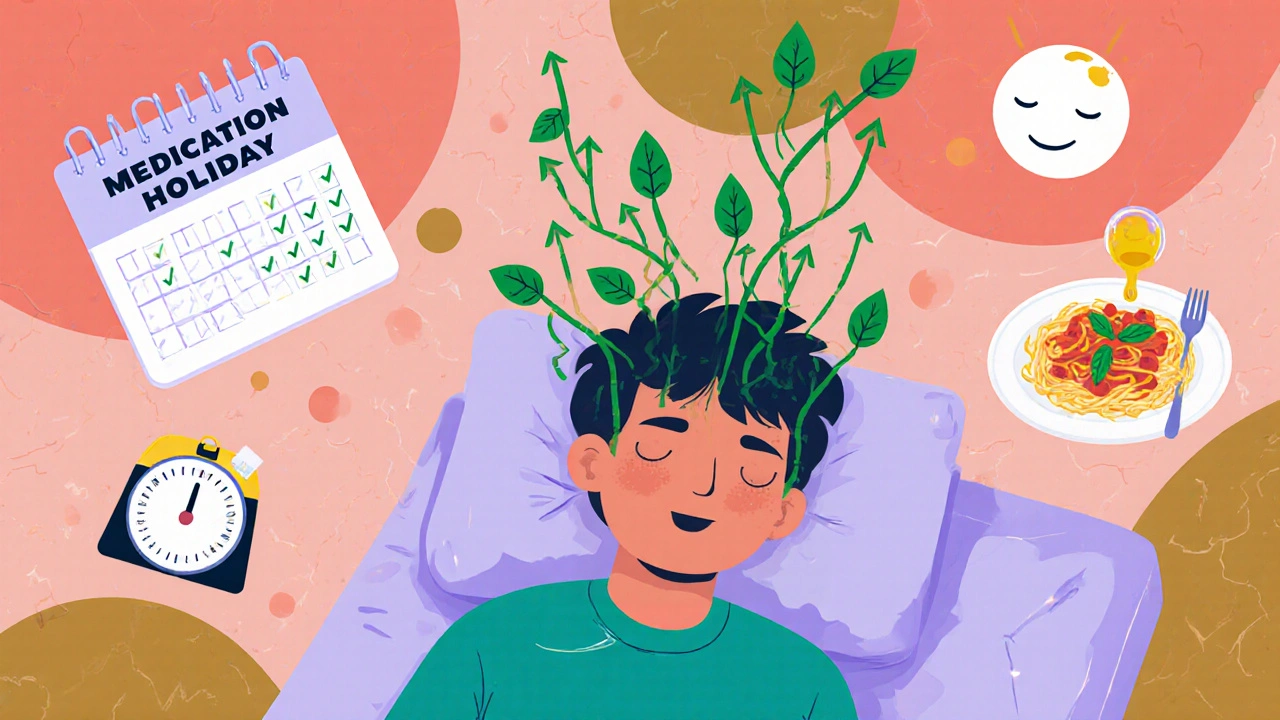
What’s New in 2025
The field is evolving. In 2023, the FDA approved a new extended-release amphetamine called Adhansia XR, designed to reduce appetite suppression. Phase 3 trials showed 18% less weight loss compared to older formulations. That’s promising. Genetic testing is also becoming more accessible. Companies like Genomind offer CYP2D6 testing to predict how a teen metabolizes stimulants. In their 2022 trial, teens whose doses were adjusted based on genetics had 40% fewer growth-related side effects. It’s not mainstream yet-but it’s coming. The American Academy of Pediatrics is updating its ADHD guidelines in late 2024 to include clearer thresholds for growth intervention. And the National Institute of Mental Health has funded a $4.2 million study (GALS) to track growth outcomes over six years. We’ll know more soon.What Matters Most
ADHD medications work. For 70 to 80% of teens, they improve focus, reduce impulsivity, and lower the risk of substance abuse and academic failure. That’s huge. But side effects like appetite loss and growth delay are real-and they’re manageable. The goal isn’t to avoid medication. It’s to use it wisely. Track growth. Adjust meals. Listen to your teen. Work with your doctor. Your teen doesn’t need to be perfect. They need to be healthy. And that means paying attention to the quiet, daily changes-not just the big milestones.Do ADHD medications permanently stunt growth?
No, most teens catch up. Studies show that while growth slows during treatment, 89% of adolescents who experienced reduced growth velocity regained their expected height by age 25. The average height difference in long-term users is about 1 inch, and this is often temporary. Growth typically rebounds during medication breaks or after stopping treatment.
How soon after starting ADHD meds does appetite loss begin?
Appetite suppression usually starts within 30 to 60 minutes after taking the medication. For immediate-release forms, it peaks around 2 to 4 hours later and fades by late afternoon. Extended-release versions can suppress appetite for 8 to 12 hours, which is why many teens don’t feel hungry during school hours.
Can I just give my teen more snacks to fix weight loss?
Snacks help, but they’re not enough on their own. The key is timing and nutrition. High-calorie, nutrient-dense snacks (like nuts, cheese, avocado, or protein shakes) offered before medication kicks in and after it wears off work best. If weight drops more than 10% of body weight or crosses two percentiles on the growth chart, medication adjustment or a break may be needed.
Are non-stimulant ADHD meds better for growth?
Yes. Non-stimulants like atomoxetine (Strattera) rarely affect growth or appetite. But they’re less effective-about 30-40% less-than stimulants at reducing core ADHD symptoms. They’re often used when growth or sleep side effects are severe, or when stimulants don’t work well.
How often should height and weight be checked?
At least every three months during the first year of treatment, then every six months after that. Some clinics track growth using digital charts that flag drops in z-scores. If height or weight falls below the 25th percentile for age or drops more than 0.5 height z-score in six months, intervention is recommended.
Is it safe to take ADHD meds on weekends or holidays?
Yes, for many teens. Weekend or summer breaks (medication holidays) are supported by the NHS and recommended by 73% of pediatric psychiatrists. These breaks can help with appetite recovery and growth catch-up. They’re most effective if symptoms don’t significantly worsen during the break. Always discuss this with your doctor before starting a holiday plan.
What’s the best time to give ADHD medication to minimize appetite loss?
Give the first dose right after a high-calorie breakfast-ideally between 6 and 7 a.m. This ensures the teen eats enough before the medication suppresses appetite. Avoid giving it on an empty stomach. For extended-release meds, timing doesn’t change much, but the effect lasts longer, so dinner becomes even more important.
Do all ADHD medications affect growth the same way?
No. Amphetamine-based meds like Vyvanse and Adderall tend to suppress growth slightly more than methylphenidate-based ones like Concerta or Ritalin. Extended-release versions have a more consistent effect, while immediate-release forms cause sharper daily dips. Non-stimulants like Strattera have minimal impact on growth.
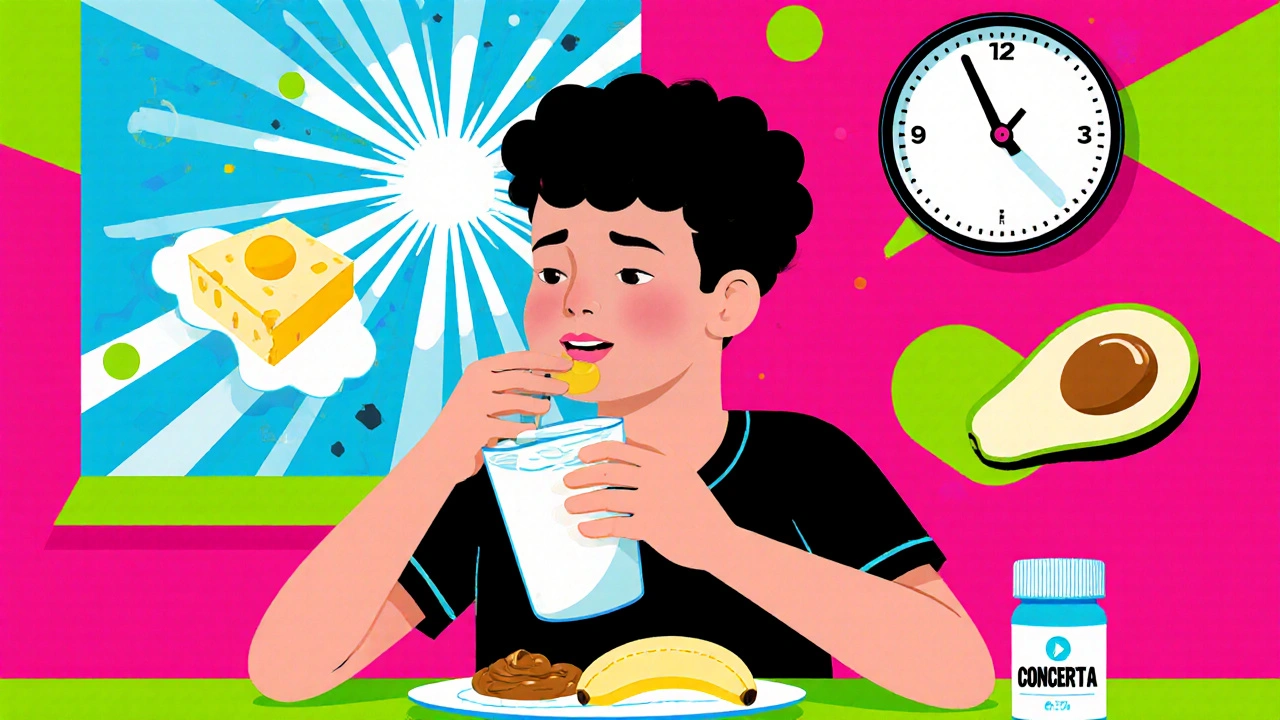

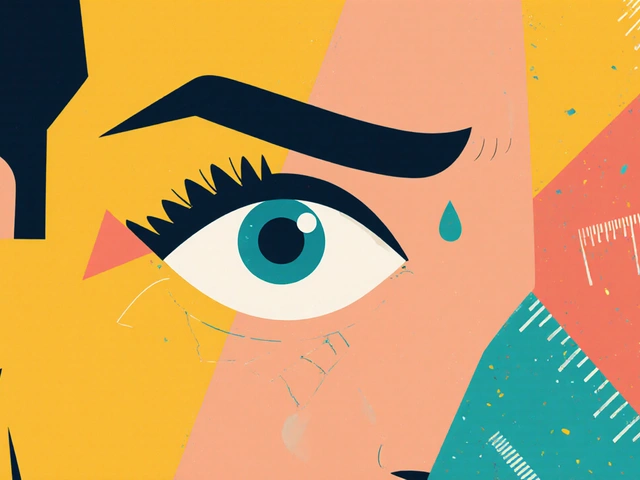
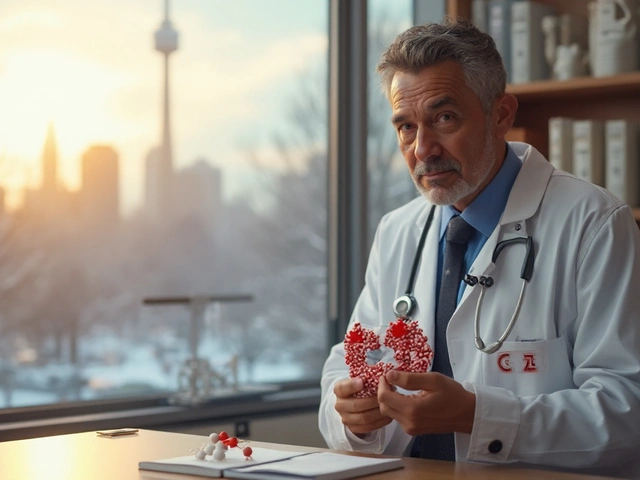
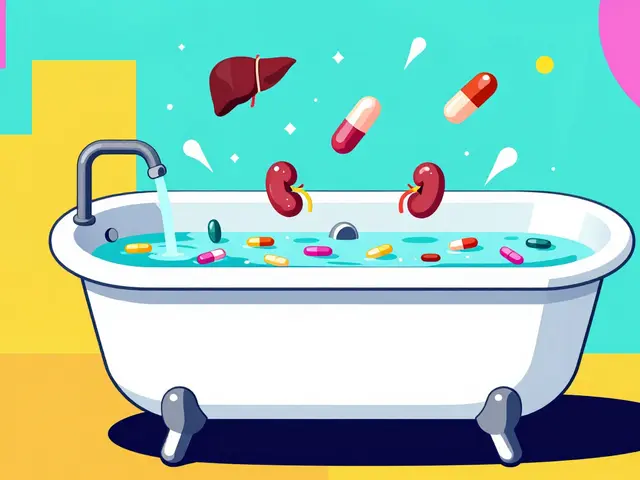
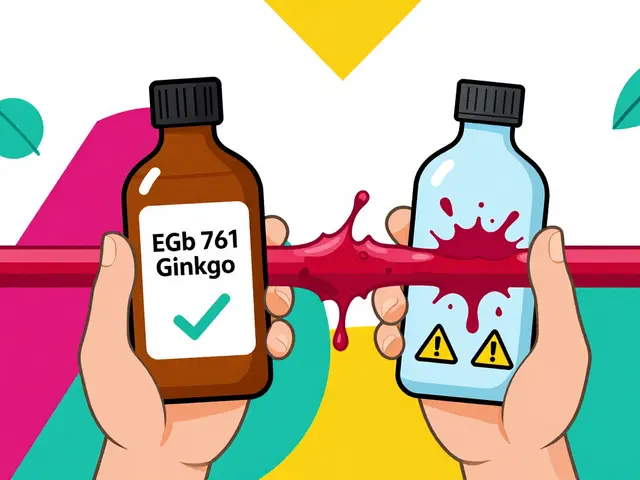
Rohit Nair
October 28, 2025 AT 18:00Man, this hit home. My brother’s on Vyvanse and he’s basically a ghost at school-eats one banana and calls it lunch. Then at night? He devours like he’s been starving for a week. We started giving him peanut butter banana smoothies before school and it’s made a difference. Not perfect, but better.
Also, growth stuff? He’s 14 and still in the 25th percentile, but he’s not falling off. We check every 3 months like the doc said. Don’t ignore it, but don’t panic either.
Wendy Stanford
October 29, 2025 AT 11:47It’s fascinating how we’ve medicalized childhood behavior to the point where we’re now routinely altering the biological trajectory of adolescents in the name of academic performance-while simultaneously ignoring the fact that the very systems we’ve built (standardized testing, 8-hour school days, hyper-structured environments) are the ones creating the need for these drugs in the first place.
Are we treating ADHD-or are we treating the consequences of a culture that demands neurotypical conformity from neurodivergent minds? The appetite suppression? The growth delay? These aren’t side effects-they’re symptoms of a deeper dysfunction in how we view development, autonomy, and what it means to be a child in the 21st century.
Jessica Glass
October 30, 2025 AT 12:26Oh please. So now we’re supposed to feel bad for kids who take meds to stop them from being walking disasters in class? Let me guess-the same parents who think their 15-year-old ‘needs’ Adderall to do homework also think their kid’s ‘creative’ for not brushing their teeth.
Grow up. If your kid can’t eat a sandwich during lunch because they’re too busy zoning out, maybe the problem isn’t the medication-it’s the lack of discipline. I had ADHD as a kid. We didn’t have pills. We had consequences. And guess what? We grew just fine.
Krishna Kranthi
October 31, 2025 AT 13:27Bro this is real life in India too. My cousin on Ritalin? He skips lunch daily, then eats 3 plates of biryani at 10pm. Mom’s scared he’s gonna get diabetes before 18. We tried giving him a big breakfast with eggs and ghee-helped a bit. But honestly? The school doesn’t even care. No one measures height here. No one asks. It’s all ‘he’s smart, let him be’.
And yeah, non-stimulants? Too expensive. Strattera costs 3x what Ritalin does. So we make do. Wish we had better options.
Lilly Dillon
November 1, 2025 AT 08:43I’m a nurse in a pediatric clinic and I see this every week. The parents who track growth charts? They’re the ones whose kids thrive. The ones who say ‘it’s fine, he’s eating at night’? Their kids end up in the 5th percentile by 16. Just measure. It takes 30 seconds.
And snacks? Trail mix > granola bars. Cheese > yogurt cups. Real food, not sugar bombs.
Kevin McAllister
November 2, 2025 AT 23:24So let me get this straight-we’re giving kids drugs that suppress their natural growth because they can’t sit still in a classroom that hasn’t changed since 1950? And now we’re patting ourselves on the back for ‘managing’ it with smoothies and z-scores?
What’s next? A pill to make them stop asking questions? A shot to make them like math? This isn’t medicine, it’s social engineering. And we’re all complicit. The system is broken, and we’re just patching it with peanut butter.
Rachel Harrison
November 4, 2025 AT 03:18Just wanted to add-my daughter’s on Concerta and we do the ‘high-calorie breakfast before meds’ thing. She eats a whole Greek yogurt with honey, 2 eggs, and a slice of toast with almond butter. Then we have a protein shake after school and a big dinner with extra olive oil. She’s gained 8 lbs in 6 months. 🙌
Also, we do weekend breaks. She’s fine without meds on Sat/Sun. Focus isn’t perfect, but she’s happy. And taller. 💪
Tiffanie Doyle
November 5, 2025 AT 10:39Thank you for writing this. My son was losing weight and I didn’t even realize it until his pants fell off. We switched to a morning smoothie with protein powder and avocado-game changer. Also, we do medication holidays and honestly? He’s more himself on weekends. Less anxious, more giggly. Who knew?
Doctors don’t always bring this up. But you gotta ask. You’re not being a pain-you’re being his mom.
james landon
November 6, 2025 AT 21:48So… we’re just supposed to accept that kids are gonna be skinny and sleepy because of meds? Like, is this normal? I mean, I get the focus thing, but my dude’s 15 and looks like a scarecrow. Maybe we just need to stop medicating kids to fit into a system that doesn’t fit them?